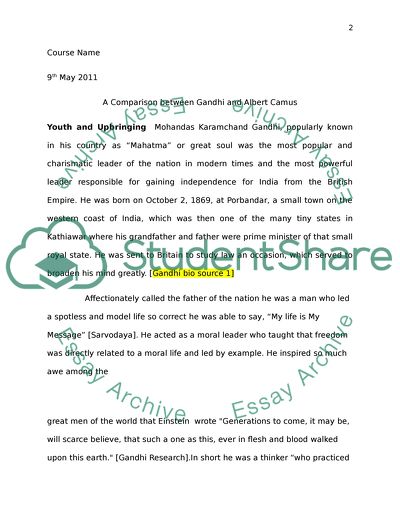Cite this document
(“A Comparison between Gandhi and Albert Camus Research Paper”, n.d.)
Retrieved from https://studentshare.org/family-consumer-science/1419716-a-comparison-between-gandhi-and-albert-camus
Retrieved from https://studentshare.org/family-consumer-science/1419716-a-comparison-between-gandhi-and-albert-camus
(A Comparison Between Gandhi and Albert Camus Research Paper)
https://studentshare.org/family-consumer-science/1419716-a-comparison-between-gandhi-and-albert-camus.
https://studentshare.org/family-consumer-science/1419716-a-comparison-between-gandhi-and-albert-camus.
“A Comparison Between Gandhi and Albert Camus Research Paper”, n.d. https://studentshare.org/family-consumer-science/1419716-a-comparison-between-gandhi-and-albert-camus.


